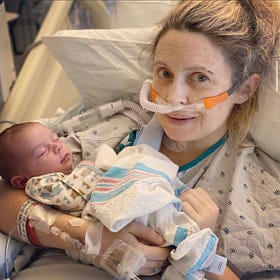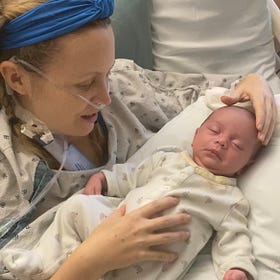Good disease names have power. They can inspire awareness, a swift diagnosis, and ultimately, save lives. I know first-hand, settling on a disease name can be incredibly challenging. I’m watching it play out in real time.
Dearest RDG Readers, I hope you had a moment to read my STAT NEWS article. I wrote it to be digestible even if you don’t have an M.D.
The article isn’t just about how I hope we can settle on a great name for my disease, but how patients and caregivers can help move the conversation forward productively. But as the aHUS Alliance mentioned, “Nearly 50% of clinical participants in the name change project saw patients as a barrier to its implementation because they are all reluctant to change.”
First, that’s a presumptive logical fallacy and it’s gatekeeping instead of considering that our practical perspectives have value.
As you know, I have thoughts and I outlined many of them in my STAT article. But some points didn’t make the final article.
The National Kidney Foundation’s Working Group outlined many obstacles and challenges to an aHUS name change in their report- but there was no mention of the actual biggest barrier.
That’s money.
Isn’t it always?
But first, a gigantic thank you to new founding member Katie McUpton. Katie, I thought you were so cool in high-school and now you’re even cooler as an adult. I am so touched by your contribution. Thank you from the bottom of my recovered heart.
Have you ever had a question for me? Maybe a burning curiosity or advice on a situation? Click on Ask Rare Disease Girl and I’ll respond to your questions anonymously in a post.
What’s in a name?
As someone with this life-long rare disease, who works in advocacy, the decisions around the name impact me directly.
So what did I do with my concerns? I rallied some patients with aHUS advocates to set up a listening session for folks like me with concerns about the new proposal.
The team project leader at the National Kidney Foundation then stopped replying mid-scheduling in December. You can almost hear the crickets.
According to disease advocacy leaders, patients were purposefully kept out of these discussions from the beginning three years ago.
And while I get we may not have the education to participate equally in high-end medical discussions, that doesn’t mean we don’t have questions about the science and methodology.
In the end, most of my worries and my questions would be better addressed in a closed listening session instead of on the internet (but now I’m writing them publicly because that’s my outlet). It’s one thing to ignore patient feedback and it’s another to ignore us completely.
And I suppose, I really didn’t like that we were undervalued and viewed as “obstacles.”
Gatekeeping from patients and advocates is a missed opportunity for creative input and practical perspectives.
There’s also an assumption patient opinions are not scientifically based, which if anyone read my STAT article would know- my questions are very much based in science.
Finally, when The National Kidney Foundation chirped up again, they shared with the aHUS Alliance that any further work on this project would require another corporate sponsorship, so a meeting with patients would be fruitless in the meantime since they would have no resources to do anything about our feedback.
So the biggest barrier to further dialogue and progress is money.
Money is apparently needed to hold more discussions, project manage implementation and awareness.
Hopefully, whenever money emerges, patients and caregivers can have a voice. If any of this discourse can lead to something positive, I hope it’s that we are heard and seen as essential stakeholders.
Patients like me don’t want to hinder the process. We might just be the ones who care the most about finding a solution.
Follow me on Instagram for more tips and pictures.
COMMENT OF THE WEEK
“it’s not a bad picture - it shows how strong you are” Zach
When your worst photo is all over the internet
·Good day readers - most of you have seen this photo of me.
If you’re new here and wondering, “what happened to this lady?” read:
Welcome to my disease. What is atypical Hemolytic Uremic Syndrome (aHUS) or Complement-Mediated Thrombotic Microangiopathy (CM-TMA)?
Hi, If you’re new here, I started writing a book six months ago when I was on dialysis. It’s intended to be both memoir and a practical tool to help folks who might be going through something similar or those caregivers and family supporting someone with a challenging diagnosis. I hope to include excerpts here as I write. NOTE: This is not intended to r…
I started writing this when I was on dialysis. It’s intended to be both memoir and a practical tool to help folks who might be going through something similar or those caregivers and family supporting someone with a challenging diagnosis. NOTE: This is not intended to replace actual medical guidance. Please consult your doctors on your individual challenges and situations. Please talk to your clinicians before adjusting any of your care protocols. Also names have been changed for most of my medical staff.
THANK YOU, NEW PAID SUBSCRIBERS!
Thank you to Katie McUpton, Dienna D’Olimpio Harada, CC Couchois, Roy Lenn, and Dr. Richard Burwick for your founding level donation.






I’ll add here most responses to the article have been positive but one clinician didnt read the article and responded assuming that patient-perspectives weren’t “scientific” … to which I requested they read the article 😉